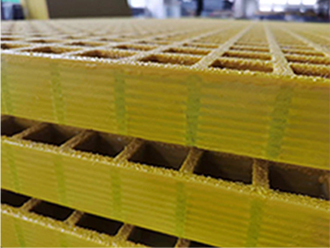loading...
- No. 9, Xingyuan South Street, Dongwaihuan Road, Zaoqiang County, Hengshui, Hebei, China
- admin@zjcomposites.com
- +86 15097380338
- Welcome to visit our website!
Hard Water Softener Solutions | Improve Water Quality
Understanding Hard Water Softeners A Comprehensive Guide
Hard water is a common issue faced by many households across the globe. It contains high levels of minerals, primarily calcium and magnesium, which can lead to various problems, including scale buildup, dull laundry, and reduced efficiency of water-using appliances. To combat these challenges, many people turn to hard water softeners, which can significantly improve water quality and provide several benefits.
A hard water softener is a device that removes calcium and magnesium ions from the water supply, replacing them with sodium ions
. This process is known as ion exchange. When hard water passes through the softener's resin beads, the positively charged calcium and magnesium ions are attracted to the beads, while sodium ions are released into the water, effectively 'softening' it.There are various types of softeners available on the market, including salt-based and salt-free systems. Salt-based softeners are the most common, using sodium chloride to facilitate the ion exchange process. These systems require periodic maintenance, including the addition of salt and regeneration cycles. On the other hand, salt-free softeners employ different technologies, such as template-assisted crystallization or magnetic fields, to prevent scale buildup without removing minerals from the water.
hard water softener

The benefits of installing a hard water softener extend beyond just improved cleanliness. Softened water can lead to longer appliance life, as it reduces scale accumulation in dishwashers and water heaters. This can translate to significant savings on repairs and replacements. Moreover, soft water often results in softer skin and cleaner hair, as it allows soaps and shampoos to lather more effectively.
Additionally, softened water can enhance the efficiency of laundry detergents, leading to brighter, cleaner clothes and reduced detergent usage. With softened water, household chores become more manageable, and the overall quality of life improves. Many users also report an improvement in the taste of drinking water, as softened water is free from the mineral taste often associated with hard water.
For those considering a hard water softener, it’s essential to evaluate factors such as water hardness levels, household size, and budget. Professional installation and regular maintenance are crucial for ensuring the longevity of the system. Furthermore, users should be conscious of the impact of sodium on those with dietary restrictions, as some softeners can add sodium to the water supply.
In conclusion, a hard water softener can be a worthwhile investment for those dealing with the inconveniences of hard water. With improved water quality, enhanced appliance efficiency, and a more pleasant bathing experience, it’s easy to see why many homeowners opt for this essential system. By choosing the right softener and maintaining it properly, households can enjoy the numerous benefits that come with softer water.
-
The Rise of FRP Profiles: Strong, Lightweight, and Built to LastNewsJul.14,2025
-
SMC Panel Tanks: A Modern Water Storage Solution for All EnvironmentsNewsJul.14,2025
-
GRP Grating: A Modern Solution for Safe and Durable Access SystemsNewsJul.14,2025
-
Galvanized Steel Water Tanks: Durable, Reliable, and Ready for UseNewsJul.14,2025
-
FRP Mini Mesh Grating: The Safer, Smarter Flooring SolutionNewsJul.14,2025
-
Exploring FRP Vessels: Durable Solutions for Modern Fluid HandlingNewsJul.14,2025
-
GRP Structures: The Future of Lightweight, High-Performance EngineeringNewsJun.20,2025
